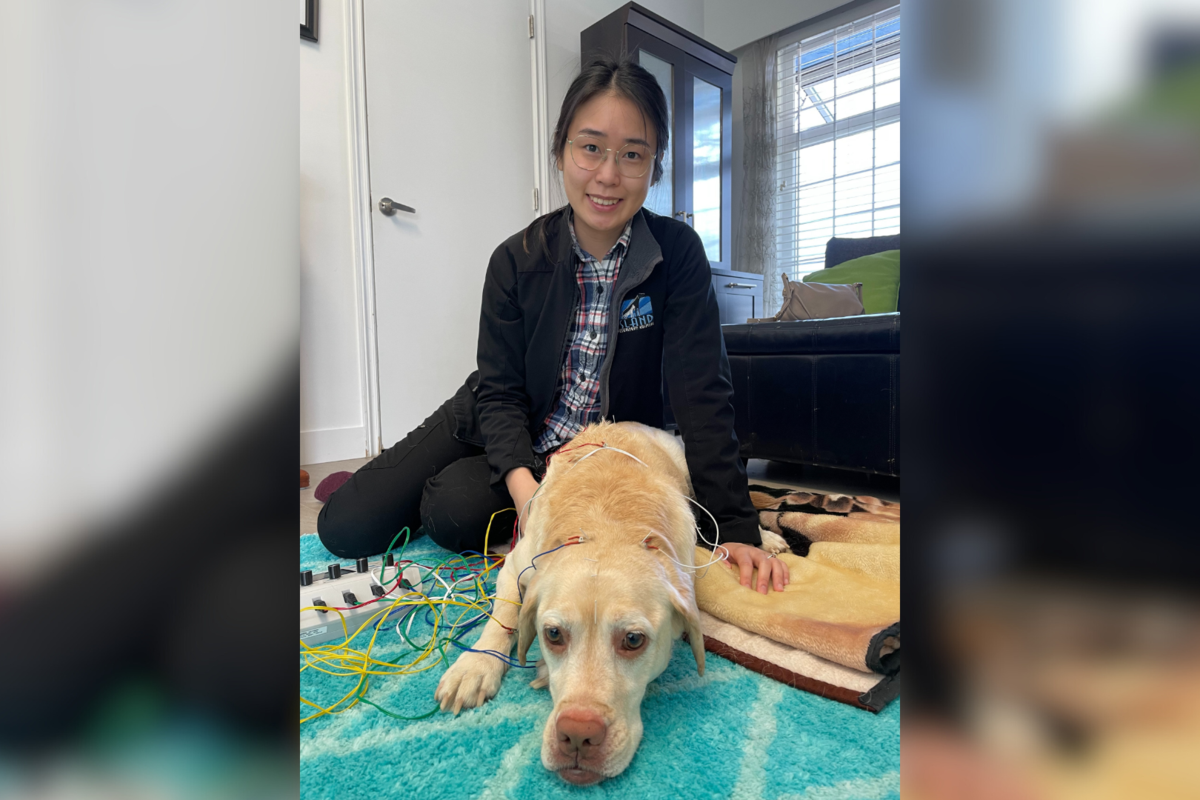Vets use traditional Chinese medicine on animals such as cats, dogs, rabbits, lizards and snakes.
Did you know that pets can also be treated with Traditional Chinese Medicine (TCM) and acupuncture?
Richmond residents are familiar with TCM because the city has the largest concentration of TCM clinics in the Lower Mainland, but what the general public may not be aware of are some of the practitioners who treat their four-legged community members.
June Siu of Island Veterinary Hospital on Westminster Highway 4 is part of a group of veterinarians in the Lower Mainland who offer such services.
She is a certified acupuncturist and herbalist, and began using TCM to treat ailments such as disc and neurological disorders in dogs and cats at Island Veterinary Hospital about two years ago.
In fact, many of her patients are animals suffering from diseases that are incurable by Western medicine.
“And usually the goal is to improve quality of life and extend a quality life,” she explained, adding that treatment usually involves herbal medicines and acupuncture, which have “minimal side effects” when administered by qualified personnel.
Traditional Chinese veterinary medicine is derived from TCM for humans and horses, Siu said. Richmond NewsDescriptions of horse and cattle treatments can be traced back to ancient Chinese texts.
The entire treatment process usually takes two to three months, but sometimes TCM can produce immediate results, like when Siu revived her kitten with acupuncture.
“One time there was a kitten that looked very weak and near death, and we couldn’t hear his heartbeat,” she recalled, adding that the kitten was so small that most of the equipment wouldn’t fit.
“I wanted to do everything I could, so I started putting the needles in the kitten, and within a minute I could hear his heartbeat very strongly. To me that was a very positive sign that he was doing well and moving very fast.”
Dr Siu specialises in treating dogs and cats at his clinic, but he says some vets also use TCM to treat other pets, such as rabbits, lizards and snakes.
TCM for pets and humans
Unlike typical boiled medicines for humans, herbal medicines for pets usually come in powder form.
“Not all herbal medicines are bitter, and usually herbal medicines are prescribed according to a patient’s pattern diagnosis, so that the patient’s body actually needs it,” Siu explained.
“So they’re actually going to want to eat it. Even if they do taste it… they’re not going to be put off by it.”
While this is easier than giving medicine to humans, Siu typically recommends that pet owners give their pet a treat afterwards “so that they know it’s a good thing.”
Acupuncture points in humans and animals are similar, but the main difference lies in anatomy.
“Finding acupuncture points in dogs and cats usually requires a combination of human medicine and equine medicine,” Siu says.
for example, Baihui The point that is usually in the center of the top of a person’s head (translated into English as “the convergence of a hundred”) is located at the rump of a dog or horse, which is the point closest to the sun.
When administering acupuncture to animals, it is important to make sure the animal feels comfortable during the 20-30 minute treatment.
“With humans, we can say, ‘Well, you’ve decided to do this, so lie down, sit here and wait,'” Siu said.
“But you can’t do that with animals.”
To achieve this, the clinic’s treatment space is decorated like a living room, with blankets and “lots of treats.” Owners often come to spend time with their pets, and Siu sometimes chats to the animals to put them at ease.
“I have to get to know each patient and respect their limitations. With some pets, it may take less than five minutes to insert the needle, and that’s it,” she added.
But keeping an animal still is actually easier than it seems, Siu said. news.
“Most of the time, the pet comes in, we talk to the owner and get them relaxed, we put the needle in and within a few minutes you’ll see the pet relax and become sleepy,” she said, adding that some pets actually fall asleep.
Siu said it was a “silly answer” to her interest in TCM. newsHer inspiration came from historical Chinese dramas, which featured stories of people being frozen to the spot when certain pressure points were pressed, as well as herbal concoctions that promised eternal life.
After graduating from veterinary school, she received her certification in Traditional Chinese Veterinary Medicine from the University of Chi in Florida.
For Siu, TCM is simply a step towards “fully understanding your pet.”
“A lot of[TCM]is about seeing, feeling, smelling, listening and observing. As veterinarians, we’re already trained to observe the patient better because we don’t speak[their]language,” she said, adding that she considers this skillset one of the tools in her toolbox.
Have an opinion about this story or any other Richmond story? Send us a letter or email with your opinion or story tip. [email protected]To stay up to date on the latest news in Richmond, sign up for our daily Top Stories newsletter.

